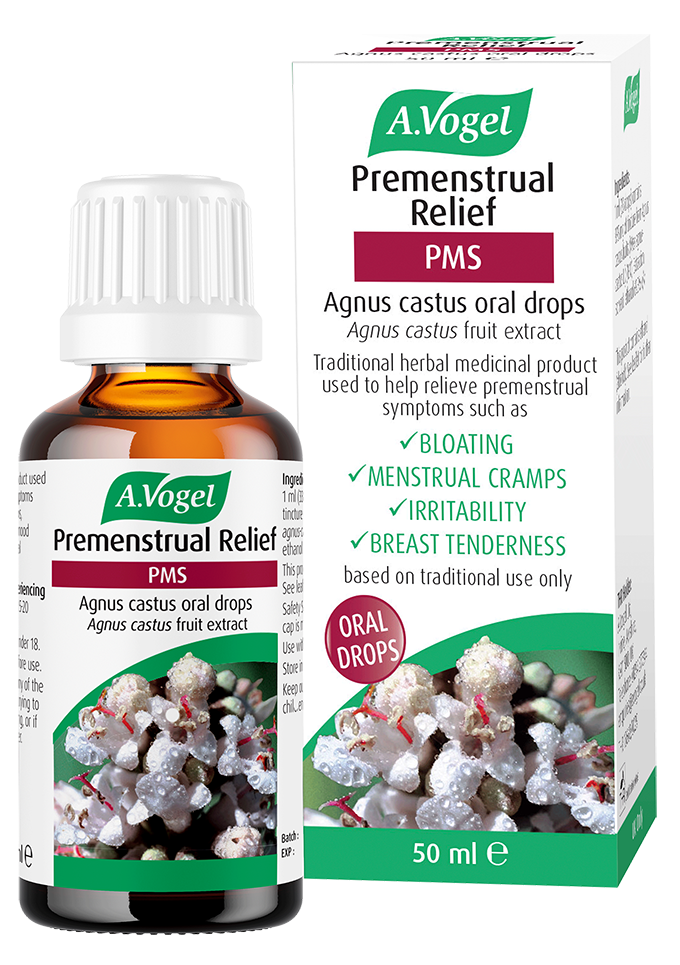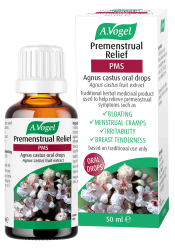An introduction to periods and mood swings
Many of us admit we get a little more, let’s say, unstable, at a certain time of the month. It is common knowledge that we can become a little more temperamental and, to some extent, it’s expected and we get away with it. But it isn’t nice – one minute you feel fine, quite happy, optimistic and the next minute, something minor leaves you feeling way too oversensitive, irritable, angry and sad; it might be just one of these emotions taking over or a delightful combination! Then let’s not forget the feelings of anxiety or even depression that some women have to endure, it just isn’t fair.
Your mood is critical to what you do and how you do it. It can affect everything from what you choose to eat for breakfast to how you interact with your partner.
So, why do your emotions run wild as a result of your menstrual cycle? I explore the possible mechanisms for mood swings around the time of your period and how home, herbal and conventional remedies can help.
How can your period cause mood swings?
It isn’t exactly clear what causes mood swings around the time of you period, although it is widely accepted that hormones have an important part to play. However, which hormones are involved and what effects they are having on other hormones and systems, isn’t well understood.
What we do know is that both oestrogen and progesterone hit rock bottom in the few days prior to each menstrual period. This is thought to be significant but there’s more to it than that.
Oestrogen is prone to fluctuating; around day 14 of the menstrual cycle oestrogen peaks in order to initiate ovulation. This is interesting in itself, as we believe this important hormone is somewhat responsible for regulating our mood, so it makes sense to have optimal amounts around the time of ovulation – this is when we should be at our happiest and ensure relationships are going well if we want any chance of becoming pregnant!
However, after ovulation, oestrogen starts to decline. It isn’t plain sailing though and over the next two weeks it fluctuates, until it eventually decreases enough to initiate menstruation. These fluctuations are thought to be critical – not only are the levels of oestrogen important but also the ratio of oestrogen to progesterone at any one time. If this ratio changes, it can result in one hormone becoming dominant over the other.
Oestrogen dominance is thought to be associated with mood swings involving more irritability and anger whilst progesterone dominance is more commonly associated with feelings of low mood, weepiness, anxiety and low self-confidence.
However, the interaction and metabolism of other hormones around this time is also important, although again, not completely understood. Serotonin is an example of this. A drop in serotonin is also thought to give rise to mood swings and is another important implication.
Diet and lifestyle factors
By implementing some dietary and lifestyle changes you can begin to take control of the mood swings; I explain how.
- Eat well – A healthy, varied diet will help you in more ways than you think. Eating little and often (3 meals a day and healthy snacks in between) will help to keep your blood sugar more stable. Wobbly blood sugar can make you feel more irritable so avoid this as much as possible. Ensure you incorporate healthy sources of protein such as lean meats, eggs, fish, beans and lentils as well as healthy fats as these are vital for the production of sex hormones and neurotransmitters, serotonin is a good example. Finally, if you eat well, you’ll feel much better in yourself. Gorging on junk food can make you feel guilty and all sorts of other negative feelings can crop up. Avoid it and you’ll feel better for it!
- Exercise – Taking part in regular exercise will benefit both body and mind! Yoga is particularly beneficial as it is known to exert positive effects on mood. Exercise causes the release of feel-good chemicals called endorphins which can help to give your mood a boost
- Sleep – Aim to get 8 hours of sleep on average a night in order to support your mood. A lack of sleep can make you feel anxious, demotivated and irritable at the best of times, never mind around the time of your period when you are in the middle of hormonal turmoil as it is!
- Caffeine – The effects of caffeine are underestimated and excess caffeine around the time of your period can push you to your limit. Caffeine stimulates the sympathetic nervous system and initiates the release of adrenaline. Over-consumption can make you feel nervous, jittery and anxious and can put pressure on your adrenal glands
- Manage your stress – Stress can have a whole-body effect and it definitely won’t be helping those mood swings. Attempt to manage your stress and feel the benefits
Herbal remedies to help
So, you have tried to implement some positive dietary and lifestyle interventions but feel you still need a little extra help. Herbal remedies could be the answer.
Agnus castus is useful for helping to relieve symptoms of PMS, for example, irritability, mood swings, water retention, sore breasts and painful periods.
Agnus castus gently supports your progesterone levels which in many cases are overshadowed by oestrogen.
At the other end of the spectrum, if oestrogen is low, (symptoms can include suffering from low mood, low self confidence, and having light infrequent periods) fermented soy isoflavones can be effective in gently correcting this imbalance.
Please note, if you are taking hormonal contraceptives such as the pill, hormone-balancing herbal remedies may not be suitable for you.
Finally, if stress is an issue and isn’t helping your mood swings, try our Stress Relief Daytime Drops. This a fresh herbal tincture containing organic Valerian and Hops. The combination of these herbs is useful for helping to reduce symptoms of stress and mild anxiety.
Premenstrual Relief Agnus castus Oral Drops| Helps Relieve Pre-Menstrual Symptoms | Mood Swings, Menstrual Cramps, Bloating & Breast Tenderness
£12.99 (50ml) In Stock Get it tomorrow, 11th July.
How can my doctor help?
If you are worried about your mood swings or they are affecting your work or personal relationships, it might be worth paying a visit to your doctor.
If hormones are to blame you may be offered a hormonal contraceptive in an attempt help to balance your hormones, although beware of any side effects.
If stress, anxiety or feelings of low mood are an issue, your doctor can explain some of the treatment options they have available such as anti-anxiety or anti-depressant medication.






 Looking for our products in a store near you?
Looking for our products in a store near you?

